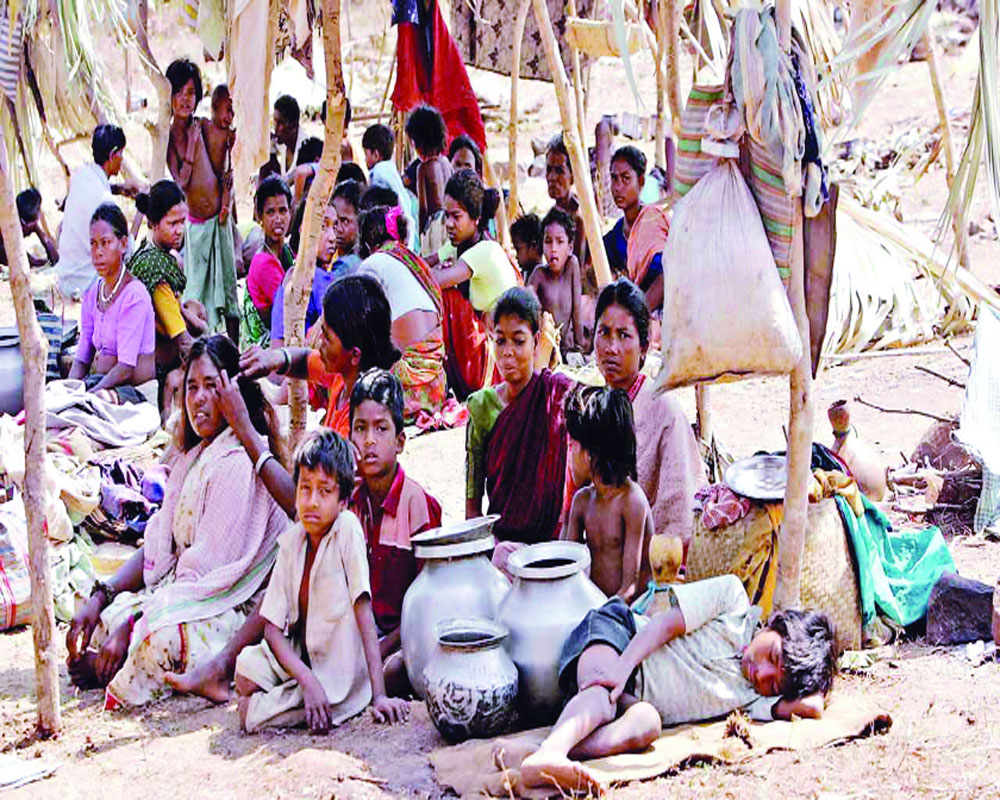A report by UNDP says India halved multi-dimensional poverty in the past decade. But much remains to be done
The incidence of multi-dimensional poverty has halved in India, going down to 27.5 per cent, which indicates that India has lifted an incredible 270 million people out of the morass in the decade between 2006-2016. The United Nations Development Programme (UNDP) classifies multi-dimensional poverty not just on the basis of financial poverty but also looks at aspects such as health, education, child mortality and threats of violence. In the 101 countries assessed in this report, the estimate is that 1.3 billion people, or a sixth of the world’s population, remain multi-dimensionally poor. India continues to have millions of poor despite dramatic steps taken by certain states such as Arunachal Pradesh, Bihar, Jharkhand, Chhattisgarh and Nagaland. The so-called “cow-belt” States account for over two-thirds of India’s multi-dimensionally poor. One should particularly single out Jharkhand as being one of the poorest regions that improved the fastest. Apparently, that State reduced the incidence of multi-dimensional poverty from 74.9 per cent in 2005-06 to 46.5 per cent in 2015-16. Only Mondol Kiri and Rattanak Kiri in Cambodia, from the Asian region, reduced it from 71.0 per cent to 55.9 per cent between 2010 and 2014.
This study by the UNDP, which has taken years to conduct, does not, of course, account for any of the social schemes launched by the Narendra Modi government such as the Ujjwala and Awas Yojana programmes alongside other projects by State governments which have targetted extreme poverty. They are bound to be more aggressive alleviators. However, even though a quarter of India’s population still lives under requisite benchmarks, the challenge Indian policy makers will face is if they want to make India into a middle-income country while continuing to attack the causes of multi-dimensional poverty. At the same time, the skewed development of States will impact the way politicians will deal with the problem. The States where the problem is worst account for over a quarter of the legislators sent to the Lok Sabha and badly-implemented wealth redistribution programmes still make politicians fall in love with them. Instead, India would do well to emulate China, which lifted millions out of poverty by moving them from unsustainable subsistence farming and into factories and infrastructure-building initiatives. For this, attention should not just be paid to social sector schemes but also towards dramatic improvements in healthcare and education, both sectors in India being quite incapable of dealing with the challenges facing them. Other programmes such as Swachh Bharat are improving lives of Indians and proof that even hygiene drives improve well-being indices. The next study will likely find that even more people have been lifted out of the poverty trough. However, one cannot still comprehend how a nation that aims to be the third-largest economy in the world within the next few years still has so many people living in abject conditions. This dichotomy will not go away anytime soon and will continue to be a challenge for Indian policy-makers for years to come. We can only start working towards reducing this problem and to do it fairly without trying out bad ideas. This has to be done not by governments at the Central, State and local levels; these have to be holistic plans. Overall there has to be a sustained growth of the economy and jobs to not only meet standards but ensure dignity of life.


























